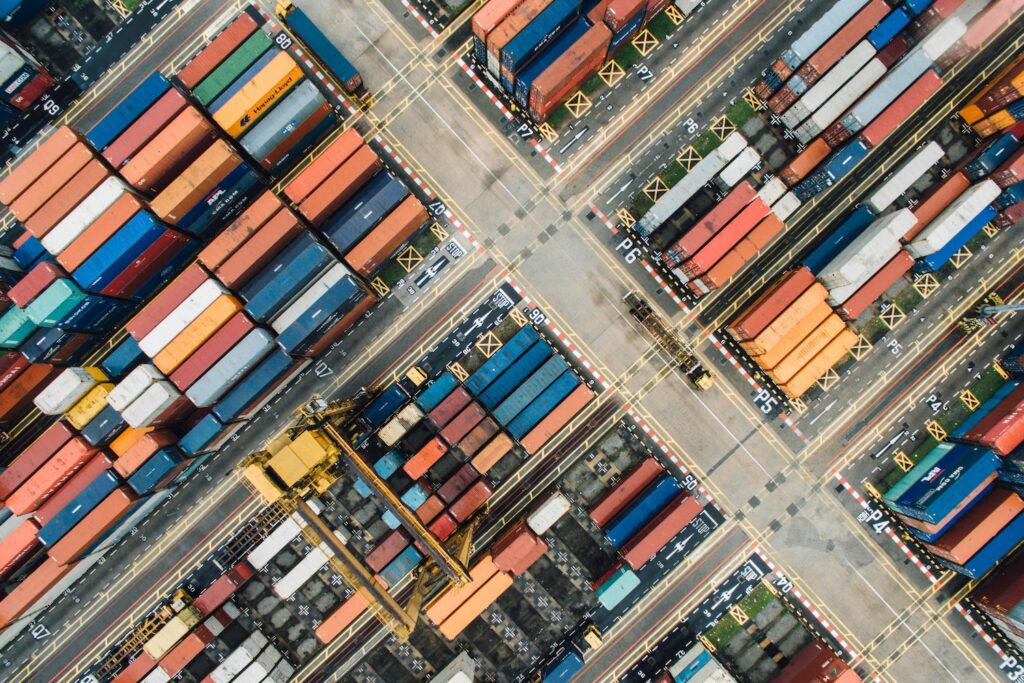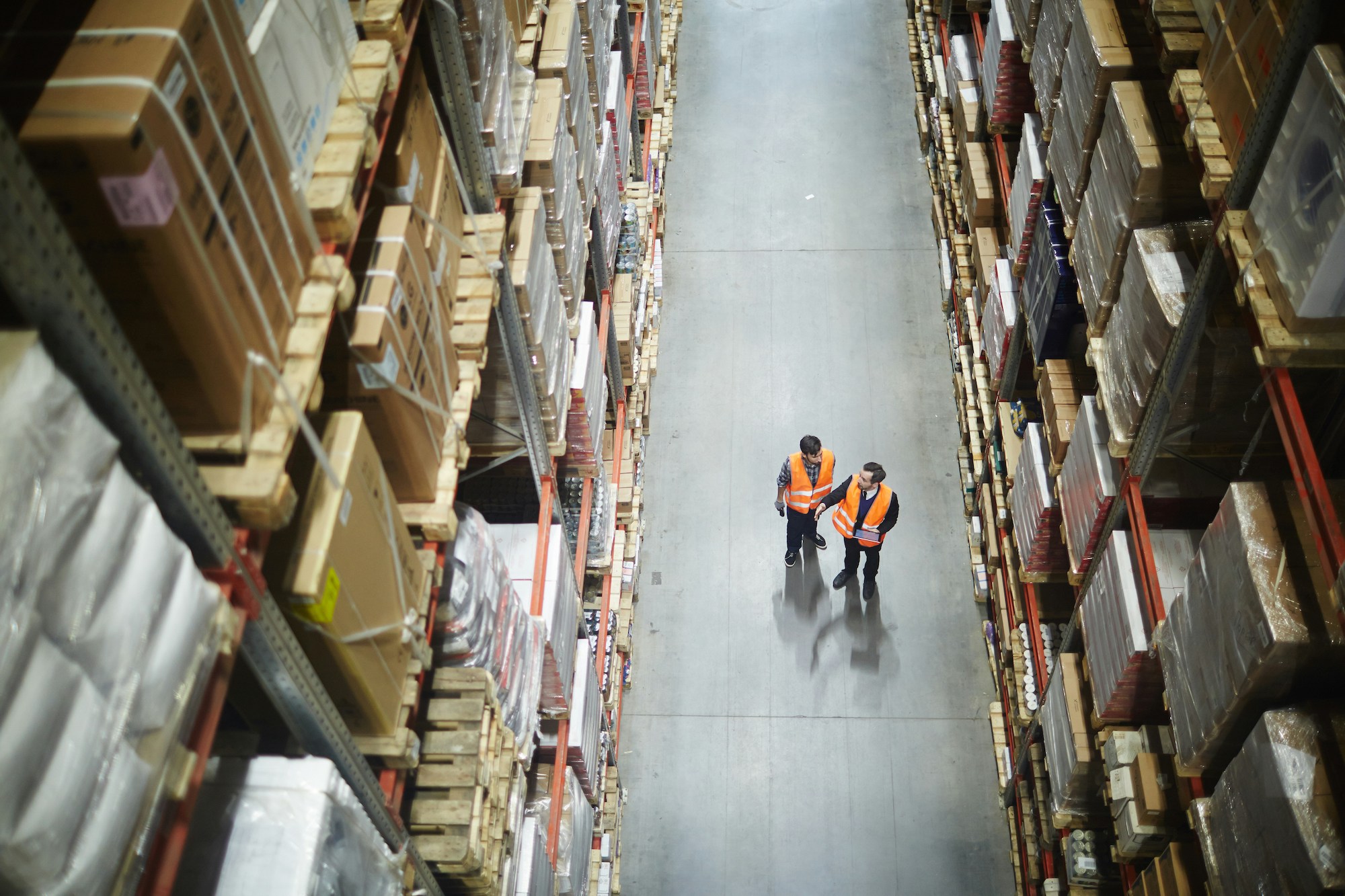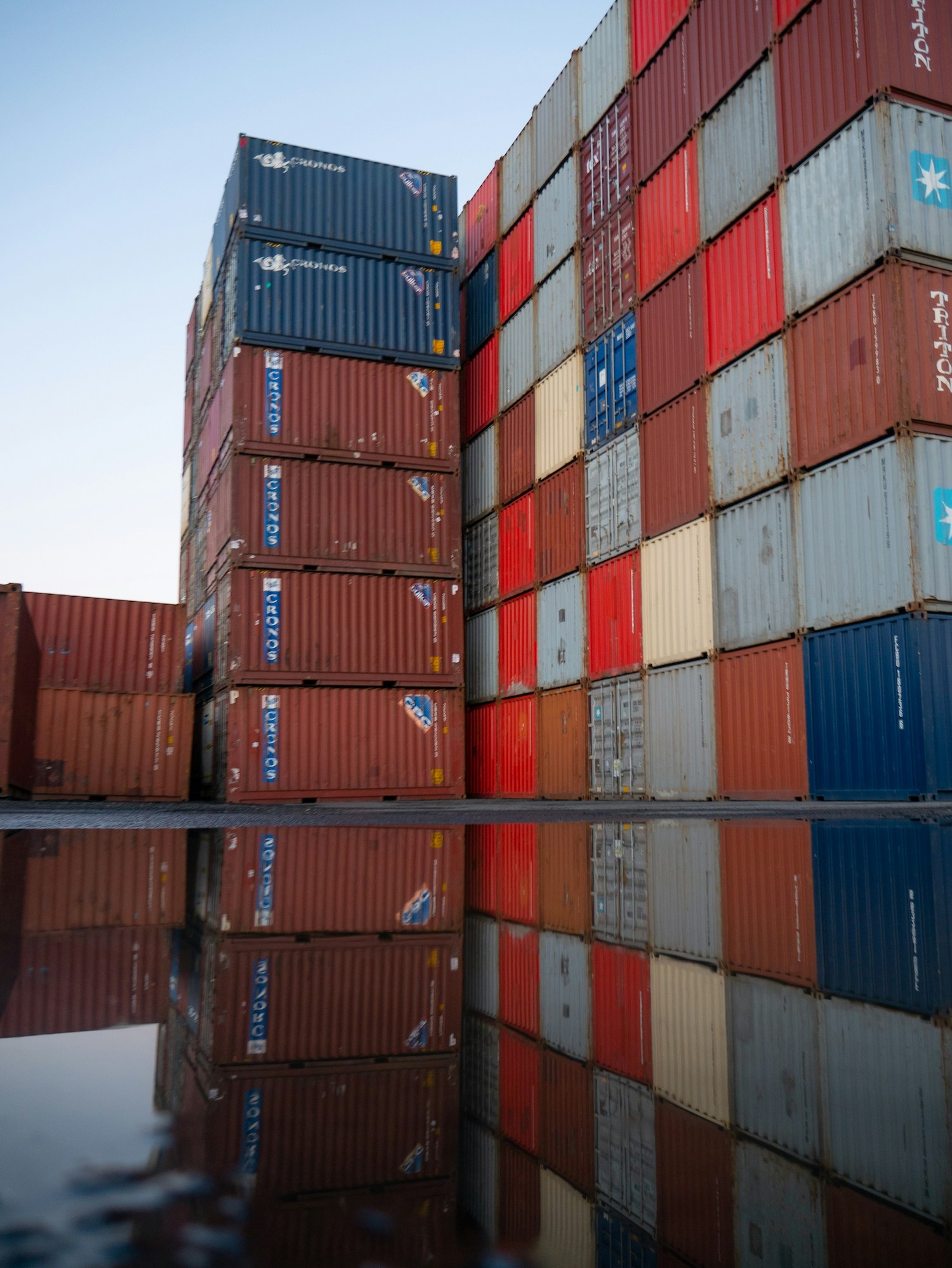In an era where global trade policies are rapidly evolving, resulting in fluctuating tariff rates, Foreign-Trade Zones (FTZs) have become essential for American companies aiming to stay competitive in the international marketplace. In the US, “Foreign-Trade Zones” correspond to what are known globally as “free-trade zones.” These are specific areas where goods can be processed, assembled, and re-exported without customs interference. Initially legislated under the Foreign-Trade Zones Act of 1934, these zones offer strategic benefits by allowing goods to be imported, stored, and processed on U.S. soil without entering the domestic commerce area immediately, thereby avoiding tariffs.
This capability is increasingly crucial in today’s economic landscape, where businesses face significant challenges due to rising tariffs. FTZs provide a critical buffer, enhancing cash flow and reducing costs associated with customs duties — essential for maintaining competitive pricing and managing broader economic impacts. Positioned in or near Customs and Border Protection (CBP) ports of entry, FTZs not only mitigate tariff impacts but also serve as pivotal hubs for streamlined trade operations, supporting complex global supply chains and expediting responsiveness to market changes.
North Bay Distribution (NBD), a logistics leader with decades of experience with FTZs, developed this guide to provide expert guidance to businesses needing to understand and/or better leverage these trade zones. As we delve deeper into the operational and strategic advantages of FTZs, it will become clear how instrumental these zones are in fortifying your business against international trade adversities while bolstering your ability to thrive in a dynamic (some would say chaotic) global economic environment.
FTZ & Current Tariff Uncertainties
Free Trade Zones (FTZs) offer strategic advantages in mitigating the impact of fluctuating tariffs. While FTZs do not directly eliminate tariff impositions, they provide a mechanism for deferring, reducing, or eliminating duties on imported goods. Specifically, tariffs or duties are only triggered upon formal entry of goods into the U.S. commerce, allowing you to optimize cash flow and adapt to tariff changes at your pace (for the most part). Furthermore, goods re-exported from an FTZ are exempt from U.S. tariffs and duties. This flexibility provides a further degree of stability and facilitates proactive supply chain management in response to the currently volatile trade policies.
What is a Foreign-Trade Zone?
A Foreign-Trade Zone (FTZ) operates under a unique regulatory framework, allowing companies to maintain their operations’ competitiveness against their international counterparts. Within these designated zones, merchandise may be imported, stored, and processed while deferring the payment of customs duties, taxes, and tariffs until the goods are distributed in the U.S. for consumption. When used correctly, this strategic advantage significantly reduces costs associated with importation and exportation processes, making it an attractive option if your business is involved in manufacturing or international trade.
The operational scope within an FTZ is broad, encompassing a wide range of activities beyond simple storage. By properly leveraging an FTZ, you can manufacture, repair, repackage, and even exhibit goods without incurring the customary duties and taxes.. Furthermore, goods that are re-exported from an FTZ are exempt from U.S. duties, providing a further incentive for international businesses to use these zones as global trade hubs.
An important consideration, the Foreign-Trade Zones Board rigorously oversees all operations within these zones to ensure compliance with U.S. laws and trade agreements. This oversight includes maintaining stringent security measures, adhering to environmental regulations, and upholding labor laws, which collectively help to ensure that the benefits of FTZs extend beyond individual companies to support broader economic and social goals. As such, FTZs are pivotal in fostering a controlled yet liberalized trade environment that bolsters economic growth while safeguarding national interests.
The Impact and Reach of FTZs
The effectiveness of Foreign-Trade Zones extends beyond their immediate economic contributions of employment and trade volumes. These zones act as significant drivers of regional economic development, attracting investments and promoting infrastructure improvements. By concentrating trade-related activities, FTZs encourage companies to develop adjacent areas, leading to improved roads, ports, and logistics facilities that benefit a wide range of industries. This infrastructure development, in turn, attracts further business activities, creating a cycle of growth and investment that enhances the overall economic landscape of the region.
FTZs play a crucial role in enhancing the global competitiveness of U.S. businesses. By allowing companies to operate within a framework that is isolated from some domestic regulations while still maintaining proximity to the U.S. market, FTZs provide a competitive edge that is particularly beneficial in high-tariff industries. Manufacturers, for instance, import components duty-free, assemble products within the FTZ, and then distribute finished products domestically or re-export them with reduced duties. This leads to significant cost savings, which can be reinvested into innovation, workforce development, or further expansion.
The presence of FTZs helps stabilize local economies by providing resilient employment opportunities. Jobs in FTZs typically range from manufacturing and warehousing to administrative roles, often offering higher wages and better benefits compared to similar positions outside these zones. This stability is vital for local communities, especially in economically disadvantaged areas where FTZs are frequently established as part of broader economic revival strategies. Thus, FTZs not only support national economic strategies but also play a crucial role in local community development and sustainability–this makes for great PR and connects your brand as a valued part of the local community.
Operational Benefits of FTZs
Foreign-Trade Zones (FTZs) present a suite of financial and operational benefits that are instrumental in enhancing the efficiency and cost-effectiveness of businesses engaged in international trade. These benefits not only facilitate smoother operations but also empower businesses with strategic advantages in global commerce.
Financial Advantages:
- Duty Deferral: By allowing businesses to delay the payment of duties until goods leave the FTZ and enter domestic commerce, companies improve their cash flow, providing them with the flexibility to manage finances more effectively. This is particularly advantageous for industries where capital is tied up in large inventories.
- Duty Reduction: Often referred to as the “inverted tariff” benefit, this aspect of FTZs allows companies to import components and raw materials without duties, assemble or manufacture products within the zone, and then pay duties at the rate of the finished product, which is often lower. This results in substantial savings, particularly for companies that transform high-duty raw materials into lower-duty finished goods.
- Duty Exemption: Items that are re-exported from an FTZ are not subject to U.S. duty payments, nor are goods that are scrapped, wasted, or destroyed within the zone. This exemption is a significant benefit for businesses that deal with materials prone to damage or that have stringent quality control processes leading to high scrap rates.
Operational Benefits:
- Merchandise Processing Fee (MPF) Reduction: FTZs provide the opportunity to streamline processing by allowing companies to make a single customs entry per week rather than an entry for each shipment. This consolidation significantly reduces the fees associated with processing multiple entries, lowering overall operational costs.
- Quota Avoidance: For products subject to import quotas, FTZs offer the unique advantage of storing goods until quota openings become available. This allows businesses to maintain a steady supply chain and production schedule without disruption due to external quota limitations.
Enhanced Operational Efficiency:
- Improved Security and Surveillance: FTZs are required to meet strict security requirements set forth by U.S. Customs and Border Protection (CBP). This results in enhanced security measures and surveillance systems, which benefit the companies operating within these zones by reducing theft and losses.
- Advanced Inventory Tracking: FTZ regulations necessitate rigorous record-keeping and inventory tracking. This enhanced oversight helps businesses maintain accurate inventory records, ensuring efficient operations and compliance with trade regulations.
- Reduced Compliance Costs: Operating in an FTZ streamlines many regulatory requirements. Companies benefit from less stringent state and local inventory taxes and enjoy simplified compliance protocols, which reduce the administrative burden and lower costs associated with regulatory compliance.
These operational and financial benefits make FTZs an invaluable asset for businesses looking to optimize their trade operations and maximize profitability in the global market.
Examples of FTZ Success
From electronics in California to automobiles in Texas, FTZs have supported diverse industries. For instance, the City of Palmdale has leveraged its FTZ to combine imported components into computer assemblies for export, substantially saving on duties. Similarly, the Port of Seattle has optimized operations for companies like Tommy Bahama, enhancing job creation and local economic growth.
Another notable example of FTZ success is found in the State of South Carolina, where the automotive industry has flourished within its FTZs. BMW, for example, has significantly benefited from its FTZ operations in Spartanburg. The facility imports automotive components from various international locations, assembles them, and then exports the finished vehicles to global markets. This operation within the FTZ framework allows BMW to minimize costs associated with duties, especially given the high value of the automotive parts involved, which supports competitive pricing internationally.
In the pharmaceutical sector, Pfizer’s facility in Puerto Rico operates within an FTZ, which allows the company to manage its complex supply chain more efficiently. The pharmaceutical industry faces stringent regulatory controls and high tariff barriers, but by operating in an FTZ, Pfizer imports raw materials and exports finished products with reduced bureaucratic overhead and lower costs. This strategic advantage supports not only Pfizer’s bottom line but also the healthcare sector globally by stabilizing supply chains and managing costs.
The technology industry also sees significant advantages from FTZs, particularly in Silicon Valley, California. Companies such as Apple utilize FTZs for handling and assembling high-value components that are sensitive to duty costs. By using an FTZ, Apple defers, reduces, or eliminates customs duties on components such as processors and screens that are imported for assembly into computers and smartphones. This not only supports Apple’s cost-efficiency strategies but also contributes to maintaining the United States’ position as a competitive player in the global tech industry.
These examples underscore the versatility and effectiveness of Foreign-Trade Zones in supporting a wide array of industries, likely including yours.
Establishing and Utilizing FTZs
If you’re considering an FTZ you have to assess potential benefits against the costs, such as initial setup and ongoing compliance. For those where establishing a new zone is impractical, the Alternative Site Framework provides a streamlined option to join existing zones, reducing setup time and extending operational flexibility.
When a business considers establishing itself in an FTZ, the decision-making process must include a detailed cost-benefit analysis. The potential benefits—such as duty deferral, reduction, and elimination—can provide substantial financial advantages, particularly for companies engaged in high-volume international trade. However, these benefits must be weighed against the costs involved in setting up and maintaining operations within an FTZ. These costs include the application fees, the expense of compliance with complex customs regulations, and potentially higher security and infrastructure investments required to meet the stringent standards set by U.S. Customs and Border Protection.
By utilizing the Alternative Site Framework (ASF), companies significantly enhance the operational scope of a Foreign Trade Zone (FTZ). Introduced to provide greater flexibility and responsiveness to the local business needs, the ASF allows for the quicker designation of new sites as subzones of existing FTZs. This framework is particularly beneficial for businesses that require the benefits of an FTZ but are located at a distance from established zones or where traditional site framework does not fit their operational needs. Under ASF, companies gain FTZ status for a site within as little as 30 days, which is a significant reduction from the traditional application process that can take up to 12 months.
In addition to providing operational benefits, the ASF helps distribute trade’s economic impacts more widely across different regions. By enabling more localized implementation of FTZ benefits, the ASF supports regional economic development strategies and fosters job creation in diverse communities. This alignment with local economic goals boosts business operations and contributes to a more balanced economic growth model where different regions participate more fully in international trade benefits.
Finally, it’s important that you engage with local trade experts and FTZ consultants during the planning and implementation phases. These professionals provide invaluable insights into the specific requirements and best practices for operating within an FTZ, ensuring that companies maximize their benefits while remaining compliant with all regulatory obligations. Through careful planning and strategic use of resources, you can effectively leverage FTZs to enhance your competitive edge in the global marketplace.
Leveraging Foreign-Trade Zones for Competitive Advantage with North Bay Distribution
As global trade dynamics shift and tariffs continue to rise, the strategic importance of Foreign-Trade Zones (FTZs) is becoming more pronounced. With decades of experience we know how to guide our customers through the FTZ process, offering expert insights and support every step of the way. From navigating the complexities of rising tariffs to managing compliance and operational efficiency, our team of seasoned professionals is here to ensure that your venture into FTZs is both advantageous and seamless. We provide tailored solutions that meet the unique needs of each business, helping you to not only cope with the challenges of increased tariffs but to also seize the opportunities they create for duty deferral, reduction, and elimination.
Engaging with North Bay Distribution to explore the benefits of FTZs is a critical component of your strategic planning, especially in today’s tariff-charged trade environment. By partnering with us, you gain access to specialized knowledge and comprehensive support that transforms the way you handle international trade, turning rising tariffs into opportunities for growth and competitive advantage.





